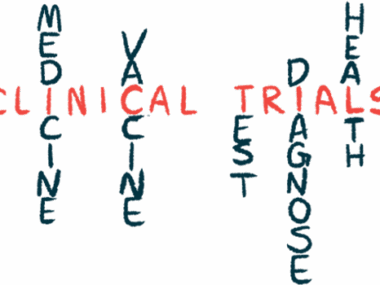Phase 3 trial of efzofitimod for pulmonary sarcoidosis fully enrolled
Top-line data from EFZO-FIT expected between July and September 2025
Written by |

Enrollment in aTyr Pharma’s pivotal Phase 3 EFZO-FIT clinical trial, testing the effectiveness and safety of efzofitimod in people with pulmonary sarcoidosis, is now complete.
The study exceeded its target number of participants, recruiting 268 patients in 85 centers across the U.S., Europe, Japan, and Brazil. Top-line data are expected between July and September 2025.
“Completing enrollment in this landmark study is an important milestone that brings us one step closer to delivering a potentially groundbreaking treatment to address the significant unmet need for pulmonary sarcoidosis patients,” Sanjay S. Shukla, MD, president and CEO of aTyr, said in a company press release. “The historic number of patients enrolled in this study signifies the strong patient demand for a new treatment option such as efzofitimod.”
In sarcoidosis, an overactivation of the immune system causes the formation of clumps of inflammatory cells, called granulomas, in different tissues and organs. In the case of pulmonary sarcoidosis, these granulomas occur in the lungs, leading to tissue damage and scarring (fibrosis), which makes breathing difficult.
Current sarcoidosis treatment options include anti-inflammatory and immunosuppressive corticosteroids, but these can potentially cause serious side effects when used long term.
Efzofitimod targets NRP2 receptor protein on surface of certain immune cells
Efzofitimod, formerly ATYR1923, is a first-in-class immunomodulator that works by selectively modulating the activity of the neuropilin-2 (NRP2) receptor protein. NRP2 is present on the surface of certain immune cells that are involved in inflammation and granuloma formation.
Delivered into the vein, efzofitimod aims to restore immune system balance and reduce inflammation, without shutting down immune responses entirely. aTyr believes this will ease scarring and improve lung function in pulmonary sarcoidosis and other interstitial lung diseases, which are a group of lung diseases, including pulmonary sarcoidosis, marked by scarring in the lungs.
In the EFZO-FIT trial (NCT05415137), patients with pulmonary sarcoidosis, 18 and older, are randomly assigned to receive either 3 or 5 mg/kg of efzofitimod or a placebo, once a month, for 48 weeks (about one year). Patients continue corticosteroid treatment, which will be tapered off during the trial.
The trial’s main goal is to evaluate the effect of efzofitimod on corticosteroid dose reduction. Additional goals include changes in lung function and sarcoidosis symptoms.
“This is a monumental achievement for the sarcoidosis community,” said Daniel A. Culver, the study’s lead investigator, and chair of the division of pulmonary medicine at The Cleveland Clinic. “It is by far the largest interventional study ever to be conducted in sarcoidosis. We expect the results of this trial to yield valuable insights that will inform sarcoidosis research and treatment in the years to come.”
Findings from a previous Phase 1b/2a trial (NCT03824392) testing efzofitimod, which was administered at 1, 3, and 5 mg/kg doses, given once a month for at least six months, in patients taking daily oral corticosteroids showed that efzofitimod lessened symptoms, improved lung function, and reduced the need for corticosteroids.
Highest doses of efzofitimod found to lower relapse rate significantly
A follow-up analysis revealed that the highest doses of efzofitimod (3 and 5 mg/kg) significantly lowered the rates of relapse or the need to increase corticosteroid use again.
“We are optimistic based on the positive Phase 1b/2a results that efzofitimod could be a potentially transformative therapy for sarcoidosis patients, which is greatly needed. We look forward to the readout from this study in 2025,” Culver said.
Efzofitimod has received orphan drug designation in the U.S., the European Union, and Japan for sarcoidosis, and fast track designation in the U.S. for pulmonary sarcoidosis. Both designations are intended to accelerate a therapy’s development for the treatment of serious diseases.







